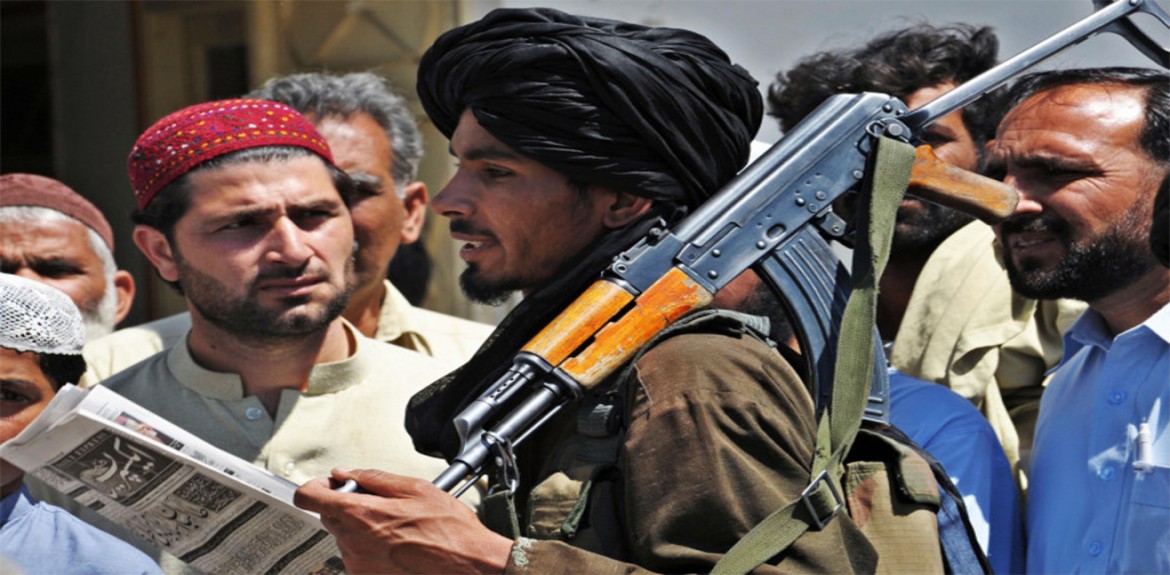
Dr. Hussain stressed the importance of media in the wide spread of radicalism and radical ideology in the framework of “Jihad”, which was mainly counted as struggle with thyself; however, it, then, justified and was linked to armed fighting.
Event Recap: Dr. Khadim Hussain Discusses
On June 28, 2020, Tarzi Research Foundation (TRF) hosted an online conversation with Awami National Party Provincial Culture Secretary, Dr. Khadim Hussain. Dr. Hussain was also head of Bacha Khan Educational Foundation, as well as Professor for more than two decades in Pakistan’s prominent universities.
The discussion was hosted and moderated by Hikmat Hassan, Advisory Board Director of Tarzi Research Foundation. The event aired live via Zoom, and TRF Facebook page, and also there was a question and answer session at the end. During the conversation, the guest highlighted radicalism and its dynamics in Afghan refugee camps, as well as Afghans students at religious schools [madrasas] in Pakistan.
After offering welcoming remarks, TRF Advisory Board Director Hikmat Hassan introduced the guest and gave a brief synopsis of the session agenda. Dr. Hussain has published more than 30 research papers, written on education, culture and terrorism, and has participated in a dozen international conferences. The conversation focused on radicalism in Pakhtunkhwa, its resources, and relevant public policy and strategy.
In his keynote address as well as the conversation that followed with TRF Advisory Board Director Hikmat Hassan, Dr. Khadim talked about two resources of radicalism; one, stemmed in public policies of government started from the Cold War following WWII better called Private Militia Regime, and second, found in the ideological context of the masses resulted from in Iran Revolution and Afghanistan Revolution in late 1970s followed by changes in curriculum and textbooks and even historical events “factual errors”. For example, the glorification of war, heroism of Muslim warriors was decorated staggeringly. Meanwhile, Dr. Hussain referenced his book titled “Militant Discourse, 2012” where he had detailed the topic deliberately.
Dr. Hussain stressed the importance of media in the wide spread of radicalism and radical ideology in the framework of “Jihad”, which was mainly counted as struggle with thyself; however, it, then, justified and was linked to armed fighting. He also pointed out the establishment of [Afghan and regional] political-jihadi parties, where the fighters were mainly recruited from student in large madrasas in Pakistan who had arrived in Pakistan in 1974s. There were about 200 private militias present in Pakistan at that time, he recalled.
Khadim Hussain went back to the days where the roots of radicalism took over the Afghan refugee camps, Afghan and Pakistani society and the regional actors, and had curbed the nationalism, nation’s values, culture, history and common sense. This trend gave rise to target killing of national leaders, tribal elders and intellectuals, as well as enhanced terrorism by kidnapping, smuggling and weapon marketing.
He also addressed transformation of radicalism into terrorism both in Afghan society and Pakhtunkhwa community. Interestingly, the securitization operations and physical interventions were made Pakistani establishment in Pakhtunkhwa and neighboring areas; however, the ideological infrastructure for radicalism was remained the same and untouched. Hence, Pakistani media mainstreamed the conception of “good Taliban or good terrorist” and “bad Taliban or bad terrorist”, where the good one was in favor of Pakistani establishment and the bad one was against it. Military operations, securitization and lack of change in policies were obstacles toward uproot of radicalism.
Moreover, Dr. Hussain reiterated the role of nationalist political movements and parties, i.e. Awami National Party, in struggling against radicalism, and working toward prevention of interference in Afghanistan as well as harming Afghan independence and stability by Pakistani establishment. National parties have, also, made efforts to remove radical and violent narratives from the textbooks and curriculum at all, and alternate them with peace and tranquility. Dr. Hussian also spoke about the price paid by members of Awami National Party, where they killed, kidnapped and tortured.
As a solution to restraint radicalism, Dr. Hussain suggested that meetings, gatherings, seminars, conference and roundtables shall be convened to discuss on the issue. Also, civil society organizations and political parties, i.e. Awami National Party, shall try to substitute war heroes with educational and social services heroes, bring changes in the curriculum and textbooks, and make this work as an official policy of its movement. Moreover, civil society organizations and political parties shall put pressure on Pakistani establishment and Afghan and international players to terminate the Private Militia Regime. Furthermore, it is needed for cultural, political and economic ties to become tightened with regional countries, including Pakistan, Afghanistan, Central Asia, China, Russia, and India, in order for the shelter and use of Private Militia Regime against each other to come to an end. Finally, people-to-people relations, including political parties, media, literature, business, and art, shall become tighten up, and they shall enter to constructive talks on cooperation with each other.
In the final audience Q&A segment, Dr. Hussain affirmed that besides Afghanistan, radicalism has harmed Pakistan, and even US, Russia and China; thus, there is a dire need for deracinating radicalization if the aim is to have a peaceful, cooperative and prosperous region.
The event underscored the shared commitment of nations, political movements, civil society activists, media, and artist to work toward ripping up radicalism in next ten years.
Watch Video: Radicalism in Pakhtukhwa and its Implications on Region with Khadim Husssain
